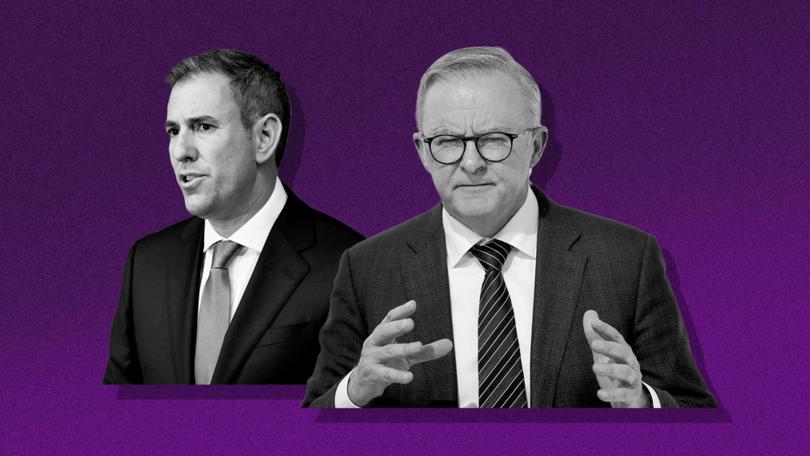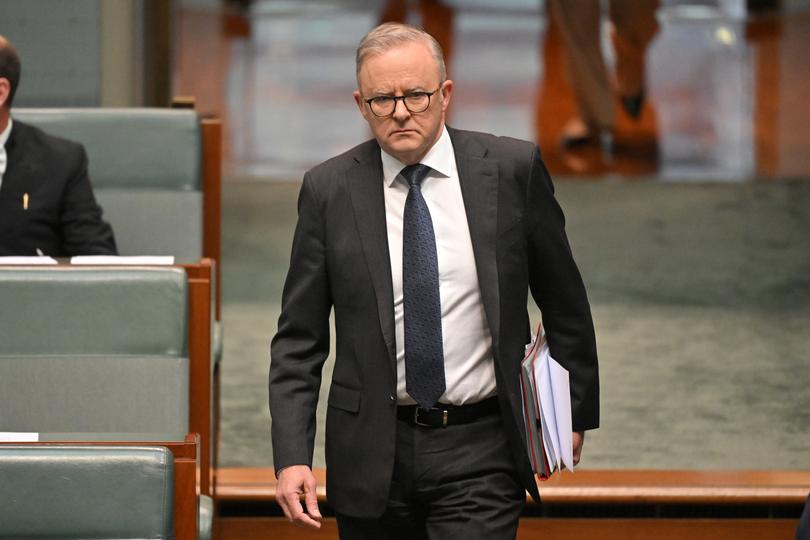MARK RILEY: Anthony Albanese’s subtle shift in language on negative gearing betrays his intentions
Anthony Albanese was asked in four separate interviews between the 2022 election and January this year if his Government would make changes to negative gearing. It seems a ‘no’ actually means ‘yeah, maybe’.

Anthony Albanese was asked in four separate interviews between the 2022 election and January this year whether his Government would make changes to negative gearing.
Each time he answered with one word: “No”.
Treasurer Jim Chalmers was asked the same question five times over the same period.
Sign up to The Nightly's newsletters.
Get the first look at the digital newspaper, curated daily stories and breaking headlines delivered to your inbox.
By continuing you agree to our Terms and Privacy Policy.He, too, answered: “No”.
That is as clear as a political answer gets. Unmistakable. Inarguable. Absolute.
So, it was something of a surprise this week that neither man delivered that same reply when the question of negative gearing raised its head again.
The news that Treasury was assessing the impacts negative gearing and capital gains tax concessions have on the Budget was unremarkable.
Treasury does that all the time.
But suggestions that it was also modelling options for restricting those concessions to reduce the impact on the Budget — that is, to save money — elevated the issue above the mundane.
The answers Albanese and Chalmers gave to whether this meant they were now, indeed, considering changes to negative gearing made things even more interesting.
The Prime Minister said: “I have no plans to do it.”
Although that answer does contain the word “no”, it does not mean “no”.
Why? While the Government might have “no plans” at the moment, plans can change.
The Treasurer’s answer wasn’t absolute either.
He said: “We have got a housing policy and that is not in it.”
But, just like plans, housing policies can also change.
Now, this might seem a bit pernickety. But in political terms it is important.
The Government’s stated position on changing the tax arrangements around housing investments has gone from a flat “no” to “not at the moment”.
And any change of language on negative gearing is bound to attract considerable attention.
The tax treatment of investment properties is a national obsession. It makes sense.

Investors can gear their losses to reduce their taxable income while they own the properties and then reap the benefits of capital gains tax discounts on the profits when they sell them.
They win coming and going.
Changing these arrangements is like playing with political dynamite. Bill Shorten tried it at the 2016 and 2019 elections and lost.
So, why the Government’s change in language now?
A deep dive into the dozen or so interviews Albanese has done over the past two days might provide the answer.
The Prime Minister has made a point of saying that his focus is housing supply.
In simple economic terms, supply is being outstripped by demand.
There are more people trying to buy houses than there are houses to sell.
That is driving prices through the roof.
Therefore, the best way to make houses more affordable is to increase that supply.
And that, Albanese says, is why his Government has passed its Housing Australia Future Fund and is currently battling the Coalition and the Greens to pass its Help to Buy shared equity scheme.
It is also why it negotiated its National Housing Accord with the States and Territories, offering big incentives to release more land, reduce red tape and encourage development towards a target of 1.2 million new homes over the next five years.
Speaking on Sydney’s 2GB on Wednesday afternoon, Albanese said: “My problem with proposed changes to negative gearing is that it won’t assist supply.
“And, indeed, the work that the Property Council has done is that it would dampen supply. And I don’t want to do anything that impacts the supply of housing.”
That is the key to the Government’s change of language.
Albanese is saying he won’t consider any changes to negative gearing if they would reduce or restrict the housing supply.
But what if some of the options the Treasury produces to limit negative gearing had a positive impact on supply? Or even a benign impact? Would he consider changes then?
He finally declared on Thursday that he would not be taking changes to negative gearing to the next election. But what about after that?
Those are the questions Albanese will be asked in the coming days to unravel the mystery of why his Government’s language on negative gearing has gone from “no” to “not at the moment”.

